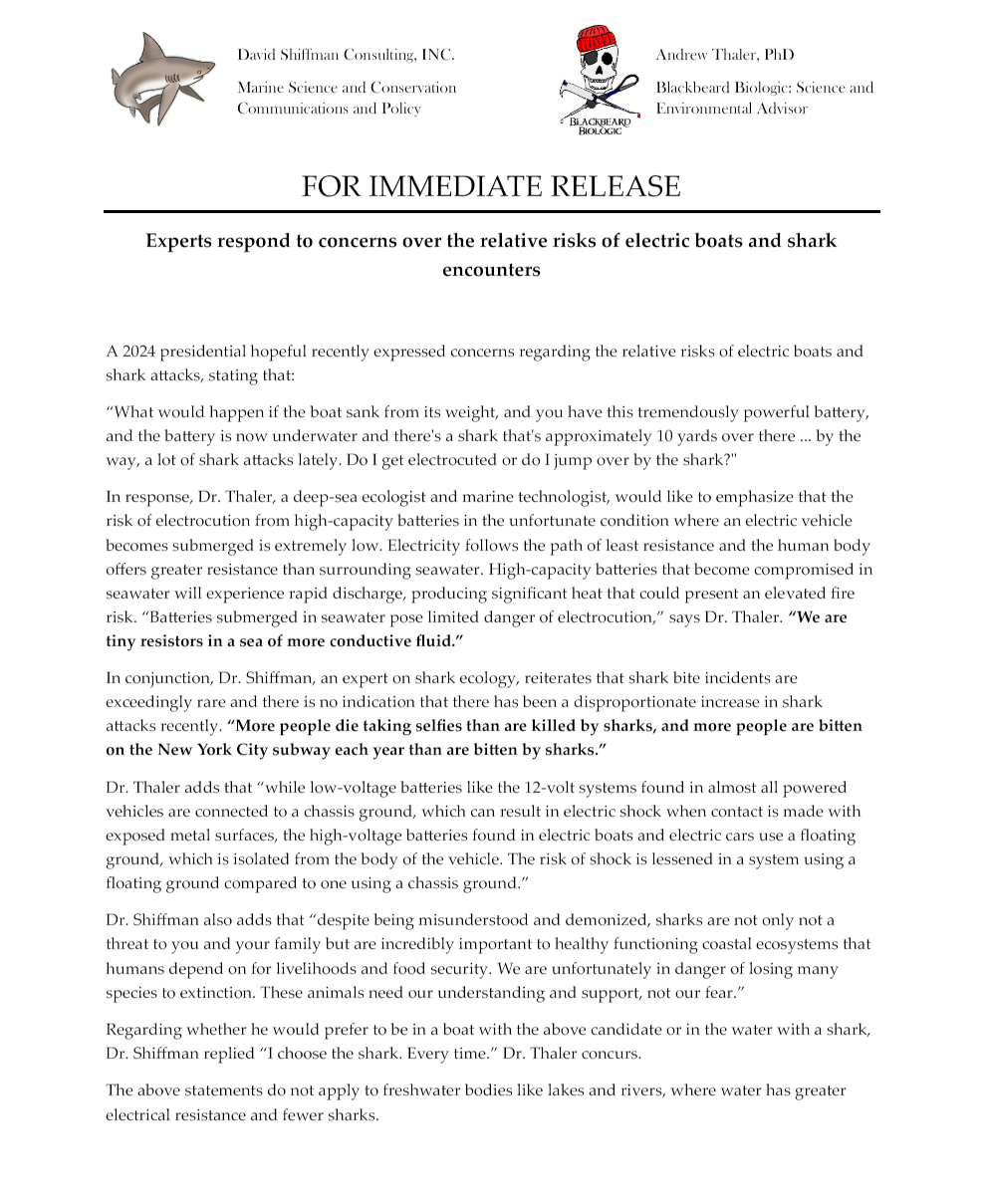A joint statement from David Shiffman Consulting, Inc and Blackbeard Biologic: Science and Environmental Advisors
A 2024 presidential hopeful recently expressed concerns regarding the relative risks of electric boats and shark attacks, stating that:
“What would happen if the boat sank from its weight, and you have this tremendously powerful battery, and the battery is now underwater and there’s a shark that’s approximately 10 yards over there … by the way, a lot of shark attacks lately. Do I get electrocuted or do I jump over by the shark?”
In response, Dr. Thaler, a deep-sea ecologist and marine technologist, would like to emphasize that the risk of electrocution from high-capacity batteries in the unfortunate condition where an electric vehicle becomes submerged is extremely low. Electricity follows the path of least resistance and the human body offers greater resistance than surrounding seawater. High-capacity batteries that become compromised in seawater will experience rapid discharge, producing significant heat that could present an elevated fire risk. “Batteries submerged in seawater pose limited danger of electrocution,” says Dr. Thaler. “We are tiny resistors in a sea of more conductive fluid.”
In conjunction, Dr. Shiffman, an expert on shark ecology, reiterates that shark bite incidents are exceedingly rare and there is no indication that there has been a disproportionate increase in shark attacks recently. “More people die taking selfies than are killed by sharks, and more people are bitten on the New York City subway each year than are bitten by sharks.”
Dr. Thaler adds that “while low-voltage batteries like the 12-volt systems found in almost all powered vehicles are connected to a chassis ground, which can result in electric shock when contact is made with exposed metal surfaces, the high-voltage batteries found in electric boats and electric cars use a floating ground, which is isolated from the body of the vehicle. The risk of shock is lessened in a system using a floating ground compared to one using a chassis ground.”
Dr. Shiffman also adds that “despite being misunderstood and demonized, sharks are not only not a threat to you and your family but are incredibly important to healthy functioning coastal ecosystems that humans depend on for livelihoods and food security. We are unfortunately in danger of losing many species to extinction. These animals need our understanding and support, not our fear.”
Regarding whether he would prefer to be in a boat with the above candidate or in the water with a shark, Dr. Shiffman replied “I choose the shark. Every time.” Dr. Thaler concurs.
The above statements do not apply to freshwater bodies like lakes and rivers, where water has greater electrical resistance and fewer sharks.
Southern Fried Science is free and ad-free. Southern Fried Science and the OpenCTD project are supported by funding from our Patreon Subscribers. If you value these resources, please consider contributing a few dollars to help keep the servers running and the coffee flowing. We have stickers.


Thank you for this hilarious article. I knew the effect of an electric boat “sinking under its own weight” is also wrong: the boat displaces its weight in water, which is why It floats in the first place.